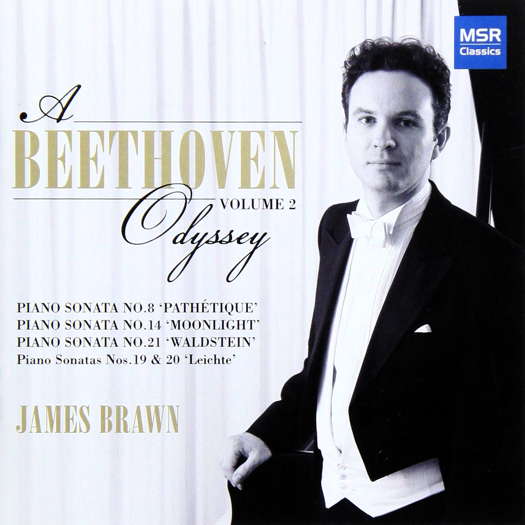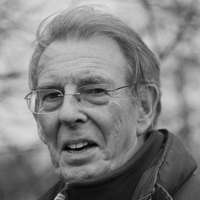 SPONSORED: CD Spotlight. Perfect Indeed - More Beethoven from James Brawn, recommended by Andrew Schartmann.
SPONSORED: CD Spotlight. Perfect Indeed - More Beethoven from James Brawn, recommended by Andrew Schartmann.
All sponsored features >>
- Alexander Skryabin
- Jennifer Paull's Amoris International
- Stuart Kale
- Marlos Nobre
- Furtwänglerian
- Christopher Smith
- Ismar Gomes
- Colin Wilson
PROVOCATIVE THOUGHTS: 
The late Patric Standford may have written these short pieces deliberately to provoke our feedback. If so, his success is reflected in the rich range of readers' comments appearing at the foot of most of the pages.
Nikos Skalkottas
Greek composer Nikos Skalkottas was born in Chalcis (on the island of Euboea) on 21 March 1904, and began violin lessons aged five, studying with his father and uncle. Later he studied violin with Tony Schulze at the Athens Conservatory, then with Willy Hess at the Prussian Academy of Arts in Berlin.
In 1923 he decided to switch from violin to composition, and studied with Philipp Jarnach, Paul Juon, Robert Kahn and Kurt Weill, and later in Arnold Schoenberg's composition masterclass.
His post-Schoenbergian music was influenced by classical repertoire and Greek traditional music, and he was a member of the Second Viennese School. In 1930 some of his works were performed in Athens and Berlin, but they weren't understood.
He returned to Athens, where he spent the rest of his life, making a living as a back-desk violinist and working at the Folk Music Archive, transcribing Greek folk music into Western music notation.
He continued to compose, privately and prolifically. There were a few performances, but most of his music was unperformed until after his death in Athens on 19 September 1949, aged forty-five.
A selection of articles about Nikos Skalkottas
Resounding Echoes by Robert McCarney - Zero Hour
Resounding Echoes by Robert McCarney - Joy!
CD Spotlight. Undoubted Historical Importance - Paul Sarcich listens to music by Nikos Skalkottas. '... Skalkottas is no slave of Schoenberg - he has his own take on Schoenberg's methods and one could not confuse the two.'
CD Spotlight. Great Advocacy - Gerald Fenech listens to orchestral music by Nikos Skalkottas. 'Stefanos Tsialis draws impassioned playing from his Athens ensemble, and the openheartedness and technical finesse with which these works are despatched is beyond admiration.'
Ensemble. An Exciting Whirlwind - Constantinos Carydis conducts Russian and Greek music in Rome, impressing Giuseppe Pennisi
CD Spotlight. Violinistic Aggression - Herwig Zack, heard by the late Howard Smith. 'Others are more brilliant but few, if any, more powerful.'
CD Spotlight. Highly Challenging - Music for unaccompanied violin, heard by Howard Smith. '... searching performance ...'

